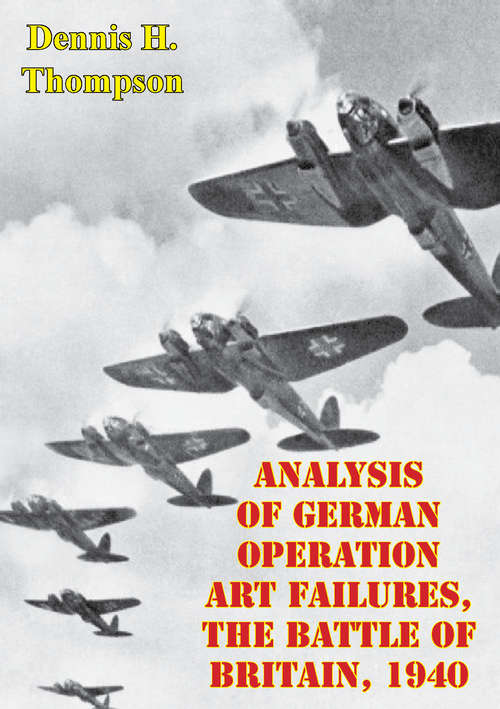Analysis Of German Operation Art Failures, The Battle Of Britain, 1940
By:
Sign Up Now!
Already a Member? Log In
You must be logged into Bookshare to access this title.
Learn about membership options,
or view our freely available titles.
- Synopsis
- The Battle of Britain was the first major defeat for the Germans of WWII. The Battle of Britain was an air operation designed to give Germany air superiority over both the English Channel and England. Gaining air superiority was considered by the Germany Army and Navy as absolutely essential prior to "Operation Sea Lion," the landing and invasion of England. Because the Luftwaffe was never able to establish the requisite air superiority, Sea Lion was cancelled.This paper examines the German Operational Art issues from a historical perspective. It concludes the failure of the Luftwaffe belongs to Reich-Marshall Goring, operational commander for the Battle of Britain. His main failure, as operational commander, was repeatedly making tactical decisions from the operational level rather than leaving this to on-the-scene tactical commanders. Secondly, he was never able to identify Fighter Command as the British Center of Gravity. Thirdly, he never understood the intelligence advantage gained by the British as a result of their newly invented radar early warning system. As a result, Germany lost the battle.
- Copyright:
- 2014
Book Details
- Book Quality:
- Publisher Quality
- ISBN-13:
- 9781782897514
- Publisher:
- Pickle Partners Publishing
- Date of Addition:
- 03/05/18
- Copyrighted By:
- Pickle Partners Publishing
- Adult content:
- No
- Language:
- English
- Has Image Descriptions:
- No
- Categories:
- History, Military, Nonfiction
- Submitted By:
- Bookshare Staff
- Usage Restrictions:
- This is a copyrighted book.
